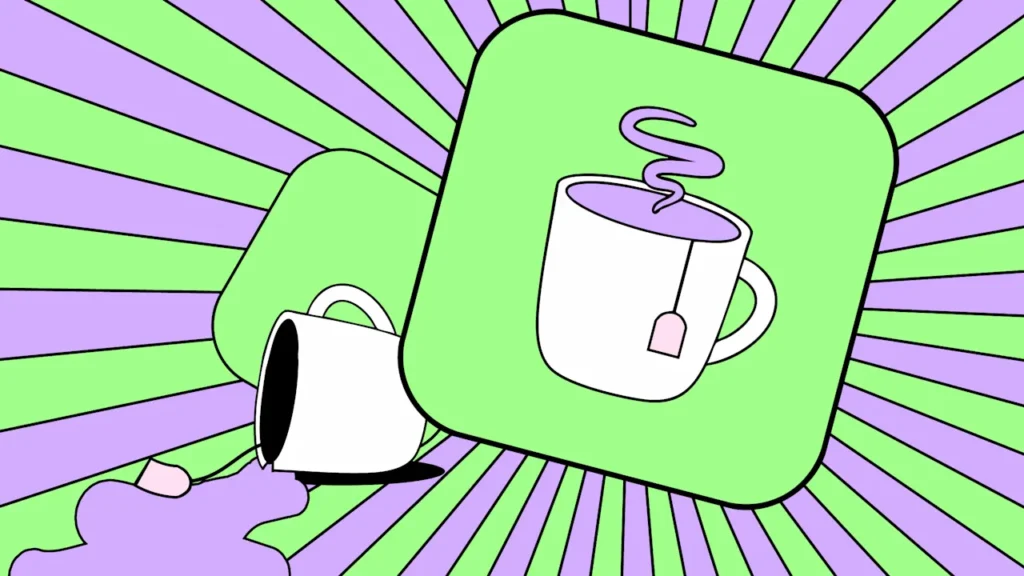
On July 25, the company behind the app Tea Dating Advice admitted it had been hit with a major data breach—which sounds like a disaster for an app trying to make a name for itself as a safe digital space for women to privately discuss, or red-flag, potential dates. And indeed, an app many had never heard of abruptly became a hot topic, not only criticized for the breach but also questioned over whether its whole “Yelp for men” approach was a good idea in the first place.
On the other hand, a week later the app is still hovering near the top of app download charts—in the third slot on Apple’s App Store as of July 31. Good idea or not, Tea has in some sense never been more popular than it is now, in the immediate aftermath of a brand catastrophe.
Notoriety attracting attention is hardly new, and pretty much every social media app has contended with a hack or breach or other bad publicity. One memorable example: Snapchat, whose brand promise is wrapped up in privacy, saw thousands of users’ accounts hacked and private photos leaked in an early-2010s incident dubbed “the Snappening”—and active users on iOS actually rose. Snap was still relatively young at the time, and the high-profile incident no doubt alerted people to the existence of a clever new communication tool.
It may not be strictly true that all publicity is good publicity, but there’s been some research exploring the idea. A 2011 study from the Stanford Graduate School of Business found that in “some cases negative publicity can increase sales when a product or company is relatively unknown, simply because it stimulates product awareness.”
As a comparison point, the researchers documented how previously obscure books hit with high-profile negative reviews actually enjoyed better sales. The effect with brands can be similar, one of the researchers explained: “This suggests that whereas the negative impression fades over time, increased awareness may remain, which can actually boost the chances that a product will be purchased.”
THE RIGHT PROBLEM
This may apply to Tea, because up until a week ago it wasn’t particularly well known. The news of the breach disaster didn’t undercut a highly popular brand—it introduced a brand to a much bigger audience. And some of that audience was (and is) looking for solutions to exactly the problems Tea is trying to address. That doesn’t mean Tea will get it right in the long run, but whatever you make of Tea’s approach, there seems to be real demand for a dating-safety tool of some kind.
Tea launched in 2023 as a kind of app version of private “Are we dating the same guy?” groups on Facebook and elsewhere online, where women share information to vet potential dates. The ostensible motive is to root out abusive men, cheaters, and other red flags. More than a few men have found this practice unfair and invasive, even libelous. Some are enraged. Naturally that stark divide applied to Tea, which had been the subject of online chatter and social media pro-and-con buzz in the days leading up to the breach, posting on its Instagram account that it had 900,000 names on its waiting list.
The controversy (and enraged male backlash) seems to have fueled the breach, which was strikingly malicious in form. Tens of thousands of leaked Tea user images and even IDs shared on forums like 4chan were used by various bad actors to publicly mock, harass, or otherwise attack Tea users. The site 404 Media, which broke the news, reported that a second breach involved thousands of direct messages within the app, including intensely personal and sensitive information. A class-action suit has already been filed against Tea Dating Advice.
The basic idea of providing women with a tool for communicating about problematic potential dates sounds straightforward enough—particularly given that many women feel dating sites aren’t necessarily a safe way to meet men. But the potential pitfalls are just as obvious: False accusations are easy and potentially quite damaging, and there’s little sense of due process or accountability. Some critics argue that the approach fosters an incurious, and even potentially combative, dating dynamic, and that the whole concept of anonymously rating other people in secret is just a bad idea.
That said, responding to women who are trying to steer clear of abusive men by launching corrosive personal attacks on them isn’t a very persuasive rejoinder. In fact, if you need an explanation for the continuing demand for tools to avoid being harassed by toxic men, look no further than this breach. Tea may not prove capable of solving these problems, but for the moment—partly because of the breach—no other brand is better known for trying.


